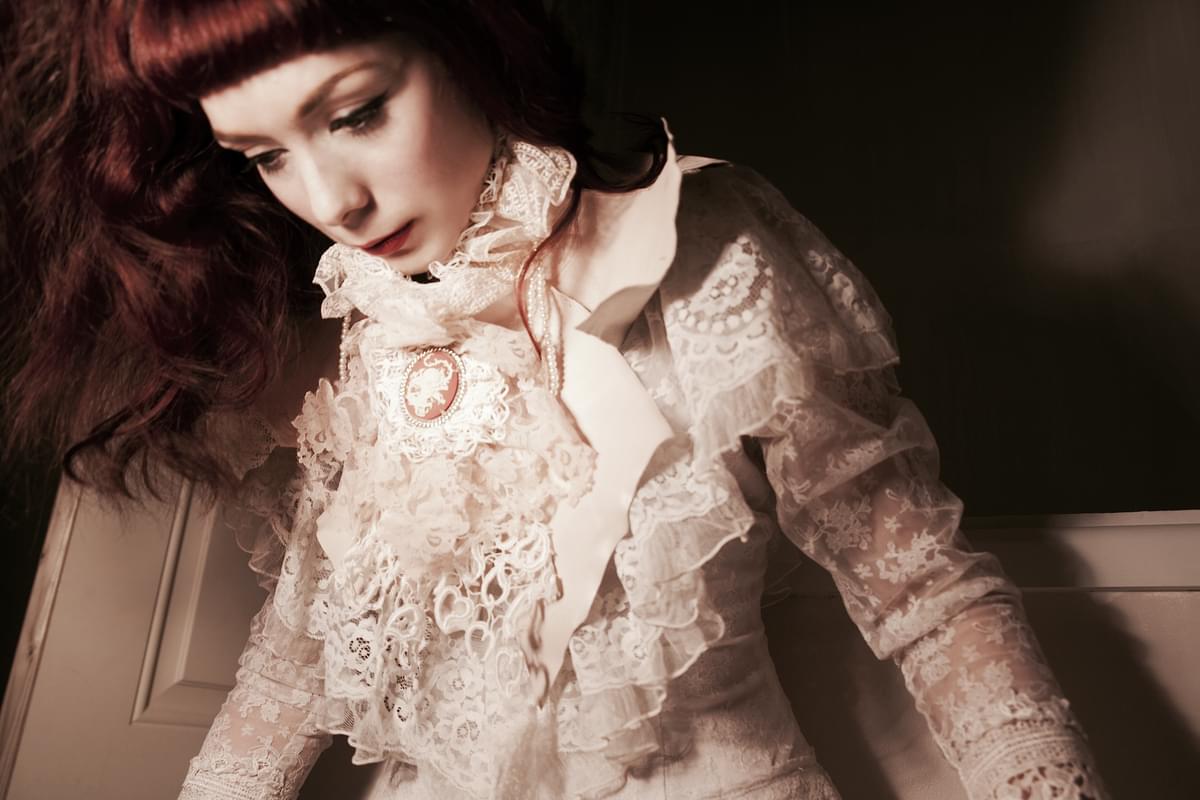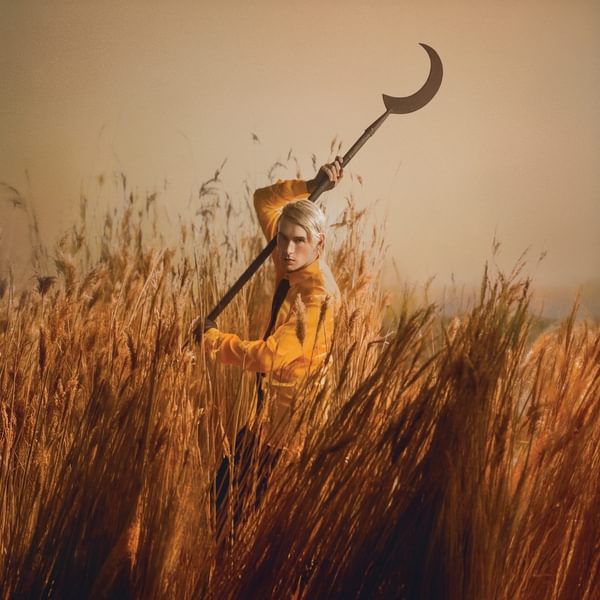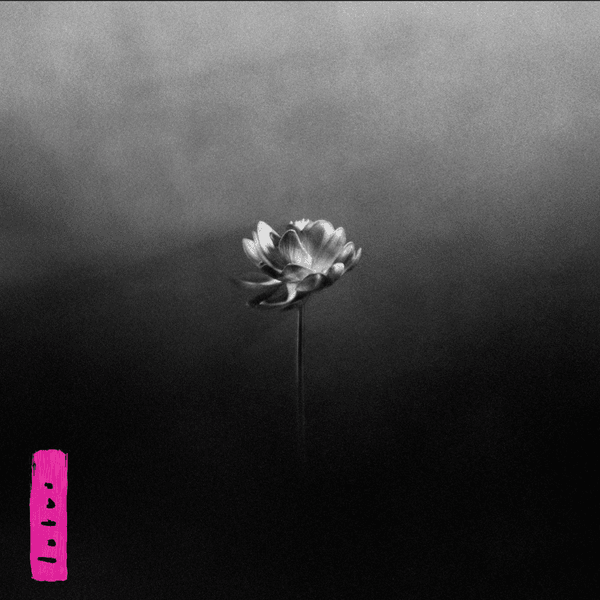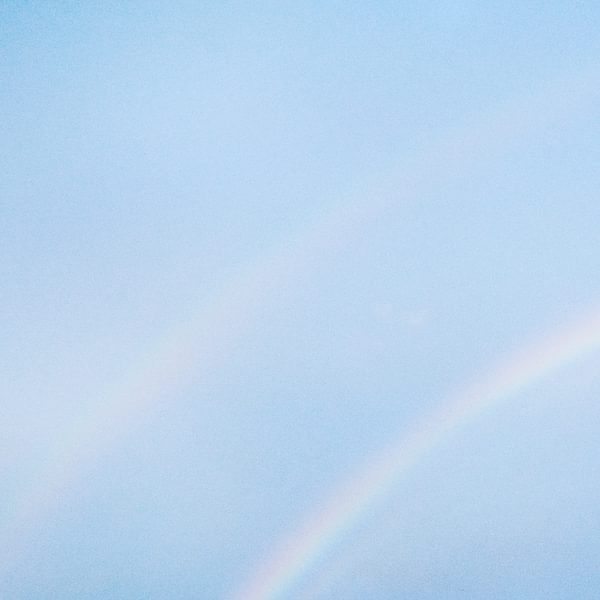
The perils of producing your own record
Catherine Anne Davies, who releases her debut album as the The Anchoress this month, reflects on the battle to retain vision and control through the production process.
I think in years gone by there was some illusion about the so-called glamour of making a record; private cars to plush studios, endless budgets to indulge countless days spent playing pool and jamming out ideas, thousands wasted on securing obscure sample rights. And these are just some of the stories I’ve heard about the heady days of the late 90s...
These days, with the advent of torrents, streaming, and the collapse of income streams for your average musician in the twenty-first century, it’s a more spartan scene for those that don’t just want to make a record on their laptop. So, just what’s the creative and psychological fallout of bringing it all back home and producing your own records? I’ve spent the last three plus years making my debut album in a west London studio (in between holding down three jobs and playing as a touring musician….) and I wanted to write something about the mental and physical pressures of producing your own music: the 17-hour days; the tunnel vision; the inability to sleep after the track loops endlessly in your head after you do finally make it to bed; the forgetting to eat; the vitamin D deficiency; the huge impact on your family and friends who you don’t see for a year…
It's a huge relief to put this album behind me in some ways. I know that you shouldn’t feel like that about your debut album but the process of making the record coincided with a lot of horrific things in my life and it feels fitting to leave that and the album behind now and look forward to the future.
But first let’s go back in time...
I first started recording my own music after my parents gave me the choice between driving lessons or a digital multitrack for my 18th birthday. I didn't really know what I was doing - I could play a few instruments and had been writing songs in my bedroom since I was 15 but I knew that I wanted to be able to create something myself from scratch and in its entirety. All of my musical idols – Prince, Kate Bush – seemed to share in this kind of authorial autonomy, producing their own records and strictly controlling the vision of their music down to the tiniest detail. And so I set about teaching myself production, reading every manual I could get my hands on. Looking up old Tape Op articles and scouring old Kate Bush interviews to find out just how she’d done it all.
I didn't have much money to buy equipment at first – I was using a SM58 as a vocal mic, an improvised pop shield made from a wire coat hanger and some tights, a keyboard bought from Argos with my student loan with a basic sampler, and a strat with an ill thought out floyd rose bridge... Any money I earnt went straight into buying better equipment, slowly piecing together the means to create tracks from scratch and constantly researching the next acquisition. It’s much the same now: birthdays and Christmas lists are incomprehensible lists of preamps, microphones, and miscellaneous studio gear. Ebay is my worst habit and I’ve commandeered the largest room in the house for my home studio so that in my actual bedroom you can’t even step out of one side of the bed. Priorities…
The biggest impact working with Paul Draper had on the album is the autonomy that he gave me in the whole process.
I remember the first few meetings I had in London with prospective managers when they would ask me about who I wanted to work with and who would be my ideal producer for the album. Everyone “loved” my self-produced demos but not one would take me seriously when I said that I wanted to produce the album myself. So, in many ways it was a stroke of luck when Paul Draper [Mansun] stumbled across my home recordings and emailed me asking if I’d put them together myself. I guess he heard something of himself in those early recordings and my determination to be so completely self-defined and I remember thinking (believing?) that he would be a good ally as he understood that need to control everything. I was adamant I would never co-write with anyone at this stage – although our working relationship producing my album later evolved quite naturally into feeding into each other’s albums - but he seemed to get where I was coming from and I needed an ally in it all.
In a way, I think that the biggest impact working with Paul had on the album is the autonomy that he gave me in the whole process. I won’t lie - it hasn’t always been smooth sailing between us but not many young [female] artists would be given free reign to co-produce their debut album. He had enough respect and belief in those initial recordings that he'd heard that I'd produced in my home studio to give me equal footing in the production process as well as generous full access to an unbelievable amount of gear and his willingness to share his experience of making records, and then having other people try to take over… I think in a way we both needed each other at this stage. He’d been badly burnt by his experiences and needed an incentive to even think about working again. I was full of ambition and endless energy and have acquired from my mother the uncanny ability to boot people up the arse even when they don’t have the motivation to work (which happened a lot in those early days). Some days I would literally have to fight to get anything accomplished but little by little, we hit our stride.

I had to learn quickly and improvise a lot of knowledge along the way. Paul had to take a fair amount of time out during the making of the record so I was often left to my own devices, or our conflicting body clocks would mean working half the day with his assistant while he slept. We eventually found our equilibrium and what was quite a “unique” working dynamic. You put two control freaks in a room together and there will always be friction but Paul had also been through the experience of having had his artistic choices taken away from him so it was always very much my final decision in the production process and he was very respectful of that to the end. For instance, he was adamant I should lose the segues between the tracks (they’re still on the album), although there were a few occasions where he turned out to be right about trimming back a bridge here and there...
The album itself was the very last thing to be recorded at Hugh Padgham's studio space, Sofa Sound in West London, before it closed its doors for the last time in February 2015. After trawling through nearly a hundred demo tracks I sent Paul, we ended up going into the Sofa main studio to track the bulk of the album live in a series of 2-3 day sessions over the course of 12 months. Everything that formed the foundations of the album was recorded over those ten days worth of live sessions. I’d go in in the morning and teach Jon (drums) and Stax (bass) the songs and structures and, after playing them round a few times, we’d start recording as a live three-piece band. Although Paul and I shared production duties on the album, Paul manned the SSL desk while recording, as I was playing piano or guitar with the band so we could get the exact takes we wanted.
I don’t believe in jamming or improvisation; it's 100% hard graft.
By this point I’d graduated from the wire and tights pop shield days and we used Hugh Padgham’s bank of vintage Neve pre-amps (as heard on the infamous Phil Collins gated drums and the classic Stewart Copeland drum sound from The Police recordings) to capture all the drum takes. Once we had those live band recordings from the Sofa sessions, everything subsequently was edited and overdubbed in Paul’s production room, “The Kitchen” – a small 10' x 15' space off the studio's building’s main kitchen, where we spent the next two years doing odd days here and there to pull it all together into a coherent narrative.
This is where the hard work and psychological battle really kicked in.
A huge influence on the way I work in the studio is the methodology and discipline I've taken from studying both ballet and poetics (I studied for my PhD In English Literature alongside making music). The rigorous practice and pruning of technique, alongside the years of hard work to get to that illusion of the "effortless" end product is at the very core of the way I put tracks together. I don’t believe in jamming or improvisation; it's 100% hard graft. When you’re producing your own album there is no down-time hanging out with the other band members or “chilling” in the lounge. No clocking off early. No social life. Missed birthdays, weddings, and christenings.
Many so-called friends don’t last the course. It can be soul destroying at times: I once spent a good part of a week comping and fine-tuning a 12 part string session only to then decide that it would not make the final arrangement of the track. The work hours are relentless and the focus required is certainly not what most people would consider “creative”, so much as brutal and repetitive. Of course, I love it. Immersive, repetitive tasks are what probably attracted me to the studio life in the first place. It certainly doesn’t suit everyone’s temperament. I liken the studio mentality to “going full Bobby Fischer”. You can probably tell that I do not have a healthy life/work balance...
Alongside the punishing work schedule there are, of course, many great, spontaneous, creative moments too. Recording vocals was always a joy for me because of relinquishing my hand on the controls. I remember one of the last vocal sessions on the closing track of the album coinciding with the Christmas just before my Dad was diagnosed with an inoperable brain tumour. There was a definite feeling in the air of it marking the end of some kind of innocence... the end of childhood perhaps. There were so many times during the making (and the “not-making”) of the album that it felt like the only sane thing to do would be to walk away from the whole thing. It sometimes feels miraculous that it's actually in a finished state when I look back at what I had to wade and fight through to get there. The track "Doesn't Kill You" probably most succinctly sums up that feeling.... Perhaps one day I'll be able to talk about some of the things that happened but certainly not yet. It’s woven in there into the narrative of the songs if you listen hard enough.
I got to make the record my way and retain the control that I was repeatedly told I would not not be given by an industry that consistenly sidelines women...
When you’re producing your own album it’s down to you to make the final calls on what does or doesn’t make the grade. We probably recorded around 25 tracks for the album but it became pretty obvious as the recording process went on which tracks were the strongest. Alongside the hit or miss factor was also a sense of the album needing a narrative arc. I started out from the very beginning knowing that I wanted to make a dark rock album and that it should also be "frontloaded" with “singles” - with a similar structure to Kate Bush's Hounds of Love, with a suite of music on the second side (which ended up forming the romance novelist's interior monologue). I had to fight at many points for the inclusion of the more esoteric aspects of the album.
It’s also difficult when you don’t have someone else overseeing your budgets or timetables to keep a sense of perspective or any sense of a deadline (I only signed to Kscope after the album was mastered). I soon discovered that Paul was also a law unto himself when it came to keeping to deadlines, which produced its own issues in the recording process. For instance, there are some tracks that have several final mixes by different mixers - an expensive mistake to make when you’re financing your own record. But we got there in the end.
By hook or by crook I’m very proud of the record I’ve made but also that I got to make it my way and retain the control that I was repeatedly told I would not not be given by an industry that consistently sidelines women or tells them which roles they can or cannot play in the creation of their art.
Get the Best Fit take on the week in music direct to your inbox every Friday

Patrick Wolf
Crying The Neck







